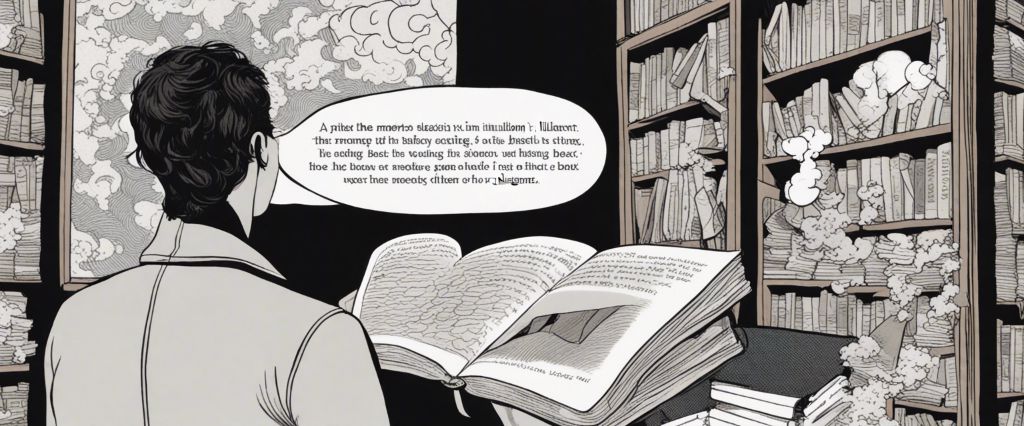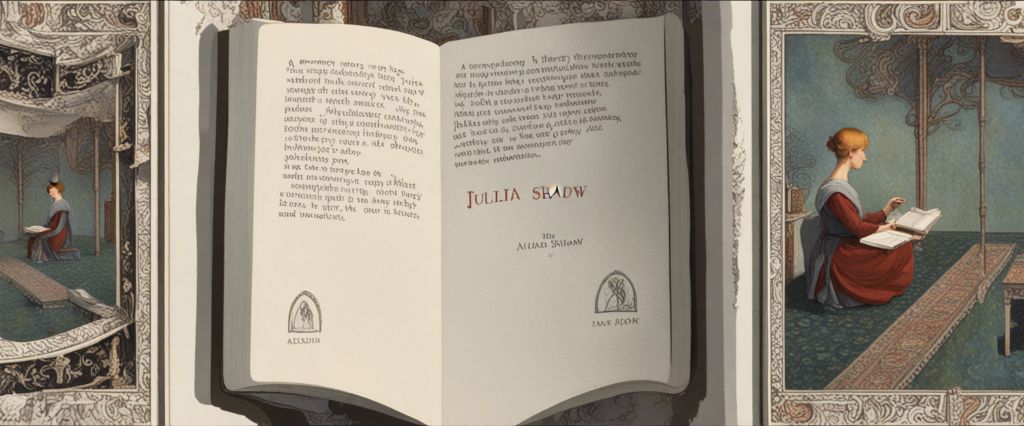
Chapter 1 What's Book The Memory Illusion by Julia Shaw
"The Memory Illusion" is a book written by Julia Shaw, a memory expert and psychologist. In the book, Shaw explores the fascinating and sometimes unsettling ways in which our memories can be influenced, distorted, and even completely fabricated. Through a combination of research, case studies, and personal anecdotes, Shaw delves into the complexities of human memory and challenges readers to rethink their beliefs about the accuracy and reliability of their own recollections. The book offers insights into how memory works, why it sometimes fails us, and how we can better understand and improve our ability to remember.
Chapter 2 Is Book The Memory Illusion A Good Book
The Memory Illusion by Julia Shaw is generally well-regarded as a informative and engaging book that challenges popular beliefs about memory. Shaw delves into the complexities of human memory and exposes the ways in which our recollections can be influenced and distorted. Readers interested in psychology and neuroscience may find this book to be a fascinating and thought-provoking read.
Chapter 3 Book The Memory Illusion by Julia Shaw Summary
The Memory Illusion by Julia Shaw is a compelling exploration of the fallibility of human memory. Shaw, a psychologist and expert in memory research, delves into the science behind how memories are formed, stored, and retrieved, and reveals how easily our memories can be distorted or manipulated.
Shaw challenges the commonly held belief that our memories are accurate and trustworthy, pointing out that our memories are not like video recordings but are instead reconstructed narratives that can be influenced by a variety of factors. Our memories can be altered by suggestion, misinformation, and other people's recollections, leading us to remember events differently than they actually occurred.
The book also discusses the implications of false memories, including the role they play in criminal cases and the potential for individuals to falsely remember committing crimes they did not actually commit. Shaw highlights the importance of being aware of the fallibility of memory and provides strategies for improving memory accuracy and reducing the impact of false memories.
Overall, The Memory Illusion is a thought-provoking and informative book that challenges readers to reconsider their assumptions about the reliability of their memories and to approach their own memories with a critical eye.
Chapter 4 Book The Memory Illusion Author
Dr. Julia Shaw is a psychological scientist and popular science author. She is known for her work in the field of memory and criminal psychology.
She released her book "The Memory Illusion: Remembering, Forgetting, and the Science of False Memory" in 2016. The book explores how our memories are not as reliable as we might think, and how they can be influenced and altered over time.
In addition to "The Memory Illusion", Julia Shaw has also written another book titled "Making Evil: The Science Behind Humanity's Dark Side". This book delves into the psychological mechanisms behind immoral behavior.
In terms of editions, "The Memory Illusion" has received positive reviews and is considered one of Julia Shaw's most popular works. It has been reprinted multiple times and is available in various editions, including paperback, hardcover, and e-book formats.

Chapter 5 Book The Memory Illusion Meaning & Theme
Book The Memory Illusion Meaning
The Memory Illusion by Julia Shaw explores the fallibility of human memory and how easily it can be manipulated or distorted. Shaw delves into the science behind memory, revealing how memories can be altered by suggestion, misinformation, and other factors. The book challenges the reader to question the accuracy of their own memories and understand the implications of memory manipulation in legal contexts, therapy, and everyday life. Shaw ultimately emphasizes the importance of critical thinking and skepticism when it comes to relying on our memories.
Book The Memory Illusion Theme
One of the central themes of "The Memory Illusion" by Julia Shaw is the fallibility and malleability of human memory. Shaw explores how memories can be easily influenced, distorted, or fabricated, leading individuals to believe in false or inaccurate recollections. She delves into the ways in which external factors, such as suggestion or leading questions, can shape our memories and create false narratives.
Additionally, Shaw examines the implications of these memory illusions on the criminal justice system, highlighting how unreliable eyewitness testimony can lead to wrongful convictions. She also discusses the impact of memory manipulation in everyday life, from the ways in which advertising can shape our perceptions to the potential for individuals to unknowingly create false memories.
Ultimately, "The Memory Illusion" encourages readers to critically analyze their own memories and question the accuracy of their recollections, while also emphasizing the importance of understanding memory errors in order to protect against their harmful effects.
Chapter 6 Other Accessible Resources
- Book listing on Amazon:https://www.amazon.com/Memory-Illusion-Remembered-Never-Happened/dp/1847947621
- Goodreads page: https://www.goodreads.com/book/show/28243291-the-memory-illusion
- Author's website: https://www.drjuliashaw.com/the-memory-illusion
- Wikipedia page: https://en.wikipedia.org/wiki/The_Memory_Illusion
- Book review in The Guardian: https://www.theguardian.com/books/2016/jun/10/the-memory-illusion-recollections-never-happened-why-we-remember-things-wrong-julia-shaw-review
- Interview with Julia Shaw on CBC Radio: https://www.cbc.ca/radio/thecurrent/tuesday-june-7-2016-1.3626230/why-our-own-memories-are-increasingly-unreliable-according-to-memory-expert-julia-shaw-1.3626240
- Article in Scientific American on memory distortion: https://www.scientificamerican.com/article/why-does-memory-work-to-distort-the-truth/
- Podcast episode featuring Julia Shaw discussing The Memory Illusion: https://www.listennotes.com/c/19ec9c9d7e554d5aa003f74c45ee3804/why-your-memory-sucks-lQ8Th56xOFa/
- Twitter account for the book: https://twitter.com/memoryillusion
- Instagram account for the book: https://www.instagram.com/thememoryillusion/

Chapter 7 Quotes of Book The Memory Illusion
Book The Memory Illusion quotes as follows:
- "Our memories are not like cameras, they are more like narratives, flexible and malleable."
- "We are all susceptible to creating false memories, even of events that never happened."
- "Our memories are shaped by our beliefs, experiences, and emotions, leading to the creation of subjective and unreliable recollections."
- "The more we repeat a memory, the more we can distort and change it, leading to the reinforcement of false information."
- "False memories often feel just as real as true memories, making it difficult to discern between the two."
- "Our brains can easily be tricked into believing in the reality of our memories, even when they are inaccurate or fabricated."
- "The power of suggestion can implant false memories into our minds, leading us to believe in events that never actually occurred."
- "Our memories are not fixed, they are constantly evolving and being influenced by external factors."
- "Understanding the fallibility of our memories can help us become more aware of the limitations of our recollections."
- "By acknowledging the ways in which our memories can be manipulated, we can better protect ourselves from the potential for false memories to deceive us."
Chapter 8 Similar Books Like Book The Memory Illusion
- "Why We Sleep" by Matthew Walker - Since you enjoyed "The Memory Illusion," I would highly recommend diving into this informative and eye-opening book by Walker, which delves into the importance of quality sleep and its impact on our physical and mental well-being.
- "The Power of Habit: Why We Do What We Do in Life and Business" by Charles Duhigg - This book explores the science behind our habits and offers practical strategies for creating positive change in our lives, drawing connections between our routines and behaviors.
- "Mindset: The New Psychology of Success" by Carol S. Dweck - Dweck's groundbreaking research on the power of mindset offers insights into how our beliefs about intelligence and ability can greatly impact our success and happiness, promoting a growth mindset for personal development.
- "Thinking, Fast and Slow" by Daniel Kahneman - Kahneman, a Nobel Prize-winning psychologist, explores the two systems of thought that drive decision-making and offers fascinating insights into our cognitive biases and heuristics, shedding light on the complexities of human reasoning.
- "Emotional Intelligence: Why It Can Matter More Than IQ" by Daniel Goleman - Goleman's bestselling book delves into the importance of emotional intelligence in navigating relationships, managing stress, and achieving success, highlighting the role of self-awareness and empathy in personal growth and fulfillment.